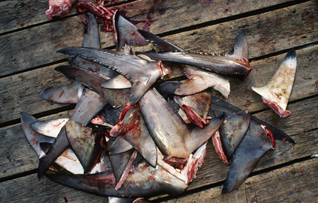 w Zealand on Thursday welcomed the New Zealand government’s announcement to work with other Pacific countries on gathering information on the populations and behavior of highly migratory shark species, such as mako sharks.
w Zealand on Thursday welcomed the New Zealand government’s announcement to work with other Pacific countries on gathering information on the populations and behavior of highly migratory shark species, such as mako sharks.“There has been a most unwarranted assumption that if a species is endangered in one part of the world, then it must be endangered here. But the reality is that the Quota Management System prevents that happening,” said Tim Pankhurst, Seafood New Zealand CEO. “Any work that provides better information on whether there are abundant stocks for any particular species, or an earlier warning of a species in decline, must be good both for conservation and sustainable harvesting.”
Pankhurst says that in New Zealand waters no sharks are targeted for their fins.
Pankhurst said the implementation of the ban on blue sharks in October 2016 is an acknowledgement by the government that it will take time to develop and implement technology to avoid catching blue sharks by accident.
“The blue sharks are captured as bycatch when the vessels are fishing for tuna. The tuna and sharks are attracted to the same hooks. If we want to avoid the sharks, or safely release them back to the sea unharmed, then we need different fishing technology. This can’t be invented overnight,” he said.
“As far as blue sharks are concerned, there is no risk in a longer timetable of introduction. All the evidence shows they are plentiful in New Zealand waters, and they are prolific breeders. One blue shark may have more than 100 pups at one time.”





